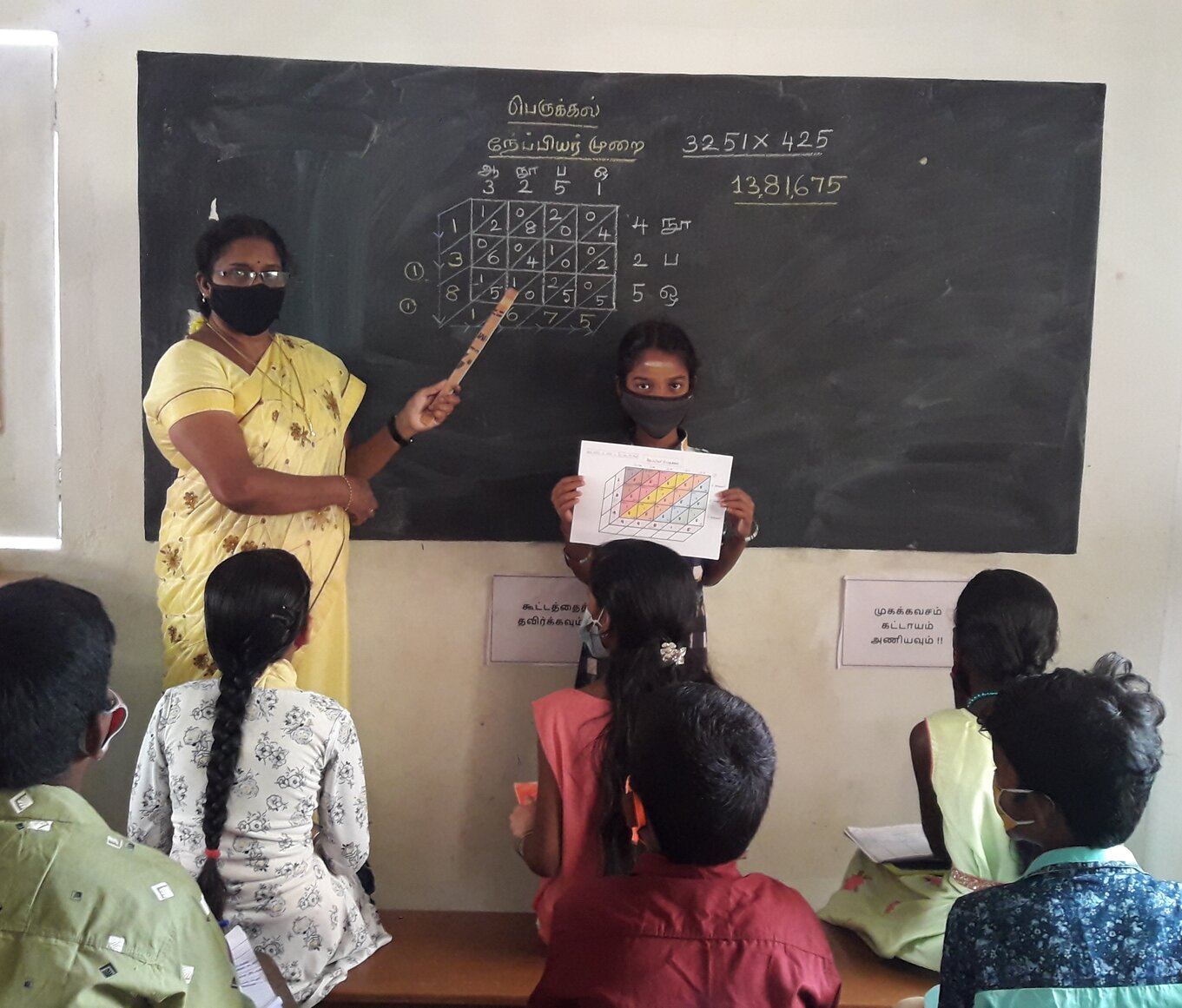 Ms. Flora is a teacher from Nagapattinam district in Tamil Nadu, southern India. She is a dynamic person who takes her responsibility as a teacher very seriously. She believes that teachers need to get together to understand the needs of the society and alter their teaching accordingly. Beyond teaching, she is a true reflective practitioner, with interests in understanding the job satisfaction of others and how keen they are to grow and develop in their roles.
Ms. Flora is a teacher from Nagapattinam district in Tamil Nadu, southern India. She is a dynamic person who takes her responsibility as a teacher very seriously. She believes that teachers need to get together to understand the needs of the society and alter their teaching accordingly. Beyond teaching, she is a true reflective practitioner, with interests in understanding the job satisfaction of others and how keen they are to grow and develop in their roles.
During the Covid-19 school closures in India, Ms. Flora found it difficult to connect with her students. She was inspired by a video from STiR Education, which asked teachers to consider how they could continue to reach their students, and started to make a plan that would leave no child behind.
At first, she wanted to start online classes for her students, but these were challenging due to a lack of access to smartphones during the day. Most children only had one device at home which belonged to their parents, who would take it to work with them. After a short time, Ms. Flora decided instead to use WhatsApp to maintain contact with her class. She could share content, give assignments and provide comments on their work through voice notes, which students could access at any time of day or night.
Although this method worked better, she soon discovered that 10 out of the 40 children in her class had no access to WhatsApp at all. So the next time, Ms. Flora created mind maps (explaining key concepts) as well as worksheets which were photocopied and delivered to the homes of children without smartphones. This way, the whole class could be reached.
She recalls that this system was still not perfect – some assignments were not completed by every child – and she says: “For 100% engagement, in-person classes are a must.” She relied on support from parents to provide access to WhatsApp and encourage the completion of their learning. And because she thought it was best to allow children to engage at their own pace, they would sometimes share three or four days’ worth of work at once.
Ms. Flora’s work was first noticed by STiR as she regularly uploaded her action plans on Padlet, a platform used by the team to gather action plans from teachers to promote peer learning. We could see immediate potential in this simple and elegant method for reaching children. So we decided to create a video which could be shared with up to 40,000 teachers across the rest of the state. This video is found below (Tamil only).
After this video was shared, the STiR team started to receive feedback on Ms. Flora’s video from teachers in other districts. For example, at PUMS Vanniyanur in Mecheri block, Salem district, teachers had been trying to reach their students using videos. After watching Ms. Flora’s video, they started to use WhatsApp and worksheets, and soon they could cater to all of their children.
In PUMS Pavalathanur in Tharamangalam block, HM Mrs. Indhrani’s school caters to the Sri Lankan refugee community. After being inspired by the video, Mrs. Indhrani reached out to community leaders to establish a centre where all of the children could gather with proper social distancing norms. Volunteers could use the worksheets created by teachers to support the students, and teachers used WhatsApp to monitor their learning.
Finally in Anniyur School in Kanai block, Ms. Shanthi shares: “Ms. Flora’s video was very inspiring for me. We found ideas on how to engage our students during the pandemic. Like Ms. Flora, we started WhatsApp groups to share video modules with our children. Assessment was also done using WhatsApp where we could check their answers and share feedback with the students.”
This example shows the genuine need for teachers to learn from one another, and the impact that a single teacher can have across a whole state. Ms. Flora says: “These days, when I go to other government training sessions, teachers walk up to me and recognise me for my work, which makes me feel happy!” STiR Education is now trying to find new avenues to understand the challenges faced by teachers in Tamil Nadu, and to promote the sharing of learning practices between teachers. You can read more about STiR’s work in Tamil Nadu during the pandemic here.


